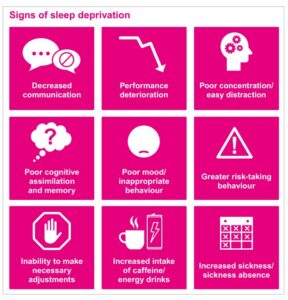Maintaining good mental health is a multifaceted effort that involves a variety of factors, from open communication and healthy habits to navigating external pressures. This comprehensive guide, drawing from insights on talking about mental health, the importance of sleep, the effects of social media, and the impact of working conditions, offers a holistic approach to support your well-being.
The power of talking
One of the most effective ways to challenge the stigma around mental health is to talk about it openly. Mental health, defined as our cognitive, behavioral, and emotional well-being, is a fundamental aspect of life. Sharing your feelings can be incredibly liberating. As one individual shared, “talking about her experiences was a ‘weight being lifted’.”
Tips for starting a conversation
Don’t wait for the “perfect moment.” Sometimes the best time to talk is right now.
Ask twice. A simple “How are you?” might get an automatic “Fine.” Asking again, in a gentle way, shows you genuinely care.
Share your own experiences. Talking about your own feelings can make others feel more comfortable opening up.
Use non-face-to-face communication. If face-to-face conversation feels too intimidating, a text or email can be a good starting point.
The crucial role of sleep
Alongside diet and exercise, sleep is a fundamental pillar of both mental and physical health. During sleep, your body repairs itself, and your brain organizes memories and processes information, leading to new insights. Sleep deprivation, on the other hand, can have significant negative effects on your emotions and performance.
Poor sleep is often linked with psychological symptoms such as low mood and anxiety, as well as physical issues like elevated blood pressure.
Tips for improving your sleep
- Maintain a consistent sleep schedule – Try to go to bed and wake up at the same time each day, even on weekends.
- Create a relaxing bedroom environment – Ensure your room is dark, quiet, and at a comfortable temperature.
- Avoid stimulants and electronics – Steer clear of caffeine and alcohol before bed, and put away electronic devices, which can interfere with sleep.

Photo credit: UKHSA GOV.UK
Find out more about our mental health services
Social media and mental health
Social media has a complex relationship with our mental well-being, offering both benefits and drawbacks. While it can connect us with friends and family globally and provide a sense of community, its constant accessibility and curated content can lead to negative feelings.
The downside of social media
- Comparison and envy – Seeing only the positive highlights of others’ lives can lead to feelings of inadequacy and loneliness.
- Increased mental health risks – Heavy social media use has been linked to higher risks of depression, anxiety, self-harm, and suicidal thoughts.
- Body image issues – Manipulated images can contribute to feelings of insecurity and isolation.
Tips for a healthier social media experience
- Limit your time online – Set boundaries and reduce the amount of time you spend scrolling.
- Be purposeful – Use social media for a specific reason, rather than as a habitual activity.
- Engage in offline activities – Spend more time on face-to-face interactions, hobbies, or clubs.
The workplace effect
Your job can be a source of purpose and fulfillment, but a negative work environment can severely impact your mental health. Many people are reluctant to discuss mental health at work due to fear of discrimination and shame.
Negative workplace factors
1. Work overload and inadequate support
- Feeling overwhelmed with tasks and lacking support from management can be a major stressor.
2. Poor team cohesion
- A lack of social support and a toxic work culture, including bullying or harassment, can be detrimental.
3. Demanding professions
- Certain jobs, like those of first responders, come with inherent personal risks that can affect mental wellbeing.
Tips for improving your mental health at work
- Talk to a trusted colleague or manager – Open up about your feelings to someone you trust.
- Prioritize a healthy lifestyle – Maintain a balanced diet, get regular exercise, and engage in hobbies you enjoy.
- Don’t be afraid to ask for help – When you feel overwhelmed, asking for help is a sign of strength, not weakness.
How can Cavendish Homecare help?
At Cavendish Homecare we are experts in mental health homecare for clients who want to remain in their own homes. When it comes to your health and wellbeing, choosing the right homecare package is of utmost importance and navigating this process can be overwhelming. With Cavendish Homecare by your side, you’ll have the support you need to remain safely at home while enjoying elevated health and wellbeing.
If you would like to enquire about our homecare services, contact us on, 02030085210 or email us at info@cavendishhomecare.com.

About the Author…
Misha Zemkova
Operations Coordinator
Misha plays a key role in ensuring the smooth and efficient running of day-to-day operations across the business. With a background in supported living and a degree in Health and Social Care, she brings both experience and empathy to her role.
 Back
Back